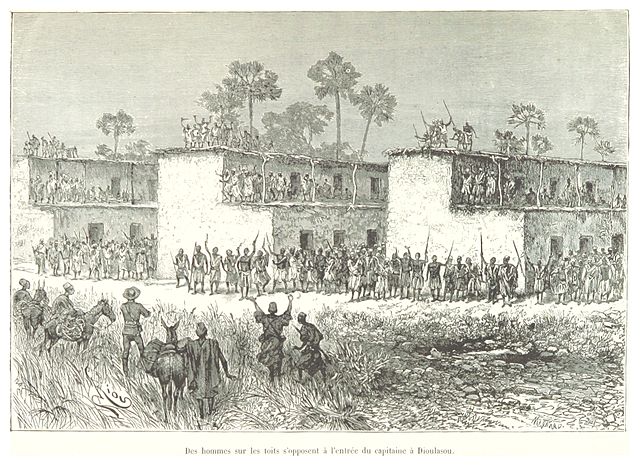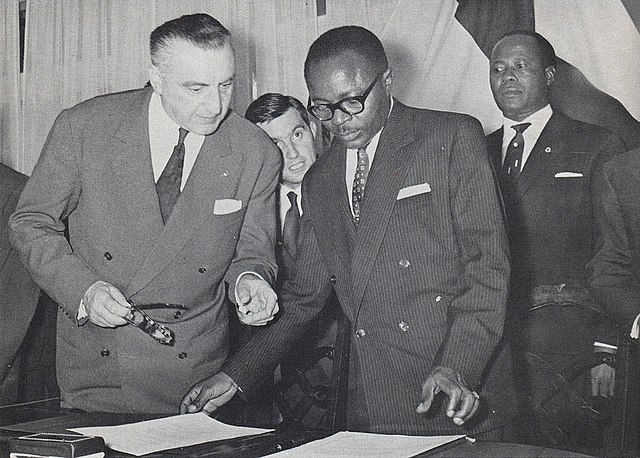2015 Burkinabè general election
General elections were held in Burkina Faso on 29 November 2015. The elections were the first national elections in the country since the 2014 Burkinabé uprising and the departure of President Blaise Compaoré, who had ruled Burkina Faso for 27 years. The party of former President Compaoré, the Congress for Democracy and Progress, was banned from presenting a presidential candidate in the presidential elections but was still able to participate in the parliamentary election.
Image: Roch Marc Christian Kaboré
Image: Zéphirin Diabré 2017 cropped
Burkina Faso is a landlocked country in West Africa. It covers an area of 274,223 km2 (105,878 sq mi), bordered by Mali to the northwest, Niger to the northeast, Benin to the southeast, Togo and Ghana to the south, and Ivory Coast to the southwest. As of 2021, the country had an estimated population of 23,674,480. Previously called Republic of Upper Volta (1958–1984), it was renamed Burkina Faso by President Thomas Sankara. Its citizens are known as Burkinabè, and its capital and largest city is Ouagadougou.
The cavalry of the Mossi Kingdoms were experts at raiding deep into enemy territory, even against the formidable Mali Empire.
Armed men prevent the French explorer Louis-Gustave Binger from entering Sia (Bobo-Dioulasso) during his stay in April 1892.
The capital, Ouagadougou, in 1930
Maurice Yaméogo, the first president of Upper Volta, examines documents pertaining to the ratification of the country's independence in 1960






